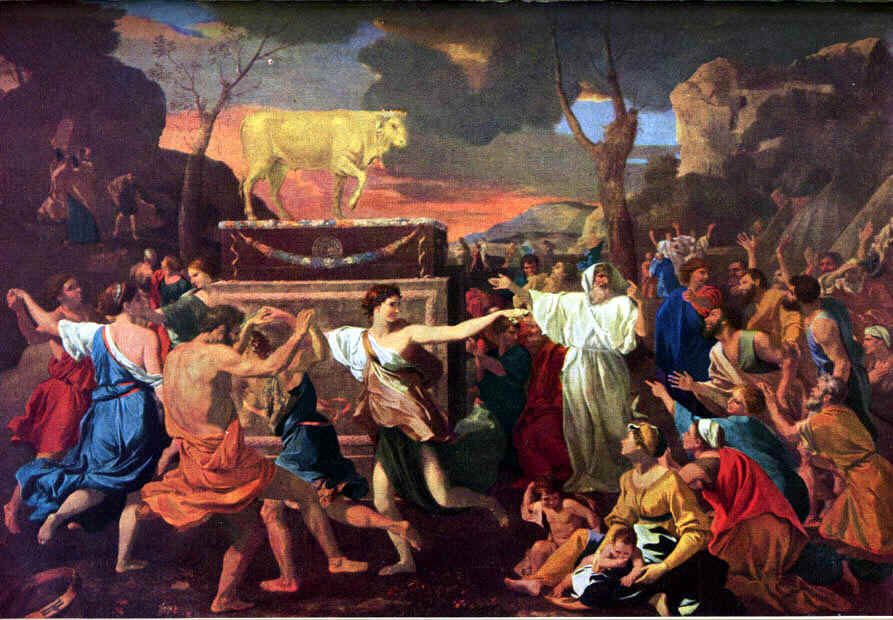In the ancient Celtic tradition of Christianity, people often talked of thin places, where as George MacLeod said of the island of Iona, there is “a tissue paper separating heaven and earth”. I wonder how many have the experience of being in such a thin place. I’ve been to Iona a number of times and can testify to the peculiar closeness to heaven of that island. But the same is true of other places. Sometimes they mix up the sacred and the secular in most peculiar ways.
 |
| Image: National Trust |
But it was this kind of opening up of the tissue paper between heaven and earth that Luke describes at the baptism of Jesus. As I’ve said already, it was a very ordinary place. We think of John’s baptisms, including that of Jesus, happening in a wide and sweeping river. But the place where we think it happened is not the main channel of the Jordan, rather a muddy little pool off to one side.
.jpg) |
| Image: Dnalor_01, via Wikimedia Commons (licence CC-BY-SA 3.0) |
Because thin places are wonderful, just like churches are wonderful, but you don’t need either of them to experience the Holy Spirit and to hear the voice of God if we’ll listen to it. Luke’s message is that what Jesus needed to experience those things was simple, everyday prayer. What Jesus needed to do was to really listen to God, to be ready for God’s presence to come to him. And that’s a message for us as well.
This is the meaning of Epiphany. In our culture, that word is associated with the coming of the wise men, the visit of the kings to the baby Jesus. However within the Eastern Orthodox tradition, Epiphany has always been more connected with the baptism of Jesus, the revelation of the dove and the voice from heaven. That’s why all the jumping into water and the like happens on that day. The word ‘epiphany’ means revealing or manifestation. It’s about God being made known, being seen. But not only in special places and certainly not only to special people, but about that happening in the everyday messiness of our lives. In some church traditions, there is a whole season given to Epiphany, in others it is the beginning of what is called ordinary time, where ‘ordinary’ simply means the time that is ordered or counted. But it applies to the other meaning of ordinary too. Epiphany is a time when heaven breaks through in the ordinary, if we will only let it.
Thomas Merton, a monk who lived in America for much of his life, writes of an experience of God in the everyday, walking down a street in Kentucky:
In Louisville, at the corner of Fourth and Walnut [Street], in the center of the shopping district, I was suddenly overwhelmed with the realization that I loved all these people, that they were mine and I theirs, that we could not be alien to one another even though we were total strangers. It was like waking from a dream of separateness, of spurious self-isolation in a special world, the world of renunciation and supposed holiness. … I have the immense joy of being human, a member of a race in which God himself became incarnate. As if the sorrows and stupidities of the human condition could overwhelm me, now I realize what we all are. And if only everybody could realize this! But it cannot be explained. There is no way of telling people that they are all walking around shining like the sun.
Merton lived as a monk, and he remained one. But this experience led him to realise that holiness, that profound experiences of God, push us into the world rather than taking us away from it. He became an activist as well as a mystic, writing and speaking about peace, racial tolerance and social equality. In the same way, Jesus’ experience of being touched by God, quite literally, pushed him into the world rather than away from it. His experience happened in prayer, and he spent the next forty days in the wilderness, but that was the start of his public ministry. It was the start of his life as the messiah whom John had foretold. He was part of the same world which took John away to prison and eventually had him killed. And Jesus was filled with the Holy Spirit.
This is important, because I’m conscious that listening to this now, or if any of it stays with you later in the day, you might be thinking something like: well this is all very well, but how does God’s voice come in the midst of suffering? How does it come to somebody whose loved one, or they themselves is slipping into dementia, or suffering from cancer, or troubled by mental health, or is worrying about their job or finances? Isn’t this just pretty talk for the pious for those people? And if here in comfortable Northamptonshire these are very real concerns, how much more is it so in Syria, or for refugees escaping troubled places, or for those caught up in poverty and hopeless? But that is the message from God that Isaiah gives us in the other reading we heard. “Do not be afraid, for I have redeemed you. I have called you by name, you are mine.” We are told that when we walk through the waters, through the rivers, through fire and flame, that God will be with us and that we’ll be safe. We are called by our names by God, each one of us. In the dark places, wherever we go, God is with us. And God says that he loves us. That he loves me. That he loves you. And you. And you. Every single one of us fallen and sinful and ridiculous people. An act of generosity and grace. God is with us.
And it’s that message of being loved by God that Jesus heard – “you are my son, my beloved, in you I am well pleased” or as the Message has it, “you are my Son, chosen and marked by my love, pride of my life”. Many people in the ancient world were referred to as a son of God, but there’s a distinctiveness about the way God calls to Jesus here. We can just hear the pride. I know that pride as a parent myself, watching my children do something amazing that I wouldn’t have thought possible just a short while ago. I’ve only been a parent for ten years, but people tell me it’s a feeling you get throughout your lifetime, of love and pride in your children. And God says the same to each one of us. Just as he calls us by name, he calls us his sons and daughters. He says to each of us “you are my daughter, you are my son, my beloved. In you I am well pleased.” Rest in that love for a moment. Allow it to sweep over you, to feel like a beloved son or daughter of God.
Everywhere can be a thin place, everywhere we can experience the Holy Spirit, everywhere we can see the light of Christ shine upon us. Everyday can be the day of the epiphany, if only we look and allow ourselves to rest in the eternal and all-encompassing love of God.
Let us close with a prayer from the Roman Catholic church:
Come Holy Spirit, fill the hearts of your faithful and kindle in us the fire of your love. Send forth your Spirit and we shall be created. And you shall renew the face of the earth.
O God, who by the light of the Holy Spirit did instruct the hearts of the faithful, grant that by the same Holy Spirit we may be truly wise and ever enjoy his consolations. Through Jesus Christ our Lord, Amen.















